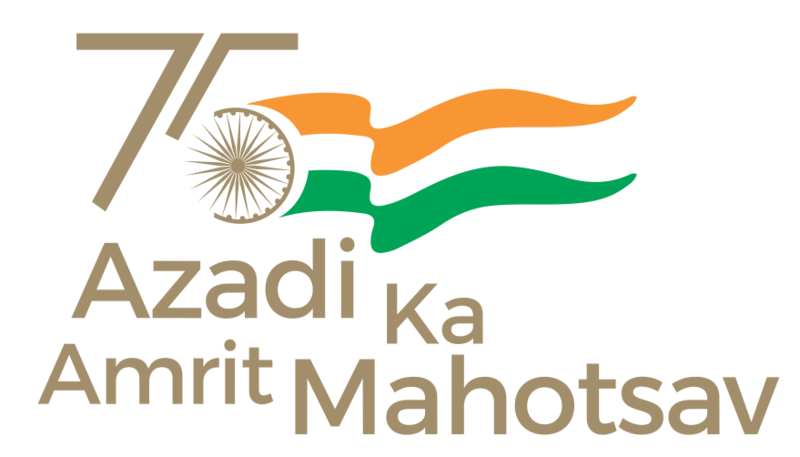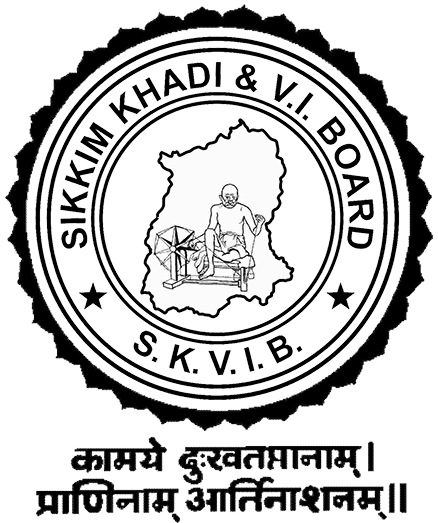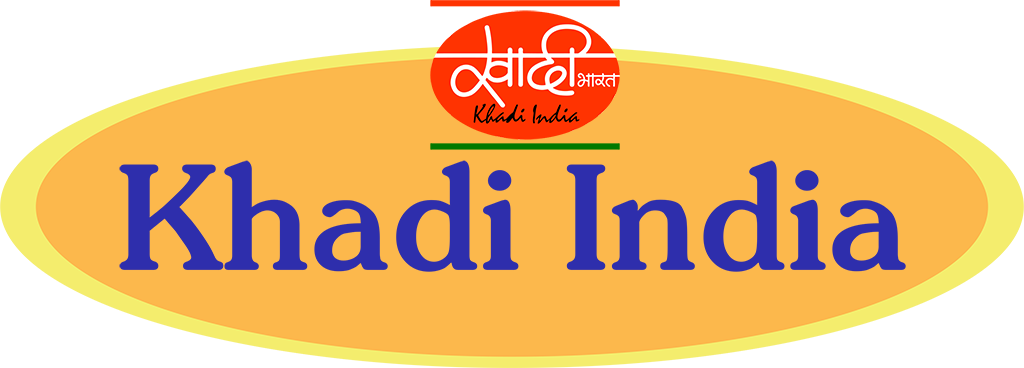
Prime Minister's Employment
Generation Programme
A glance atPMEGP performanceby SKVIB
Year
Projects received
Project sanctioned
Total value of projects (Rs. In Lakhs)
Total subsidy amount( Rs. in Lakhs)
Year
Projects received
Project sanctioned
Total value of projects
(Rs.in Lakhs)
Total subsidy amount
(Rs.in lakhs)
Year
Projects received
Project sanctioned
Total value of projects
(Rs.in Lakhs)
Total subsidy amount
(Rs.in lakhs)
Year
Projects received
Project sanctioned
Total value of projects
(Rs.in Lakhs)
Total subsidy amount
(Rs.in lakhs)
Year
Projects received
Project sanctioned
Total value of projects
(Rs.in Lakhs)
Total subsidy amount
(Rs.in lakhs)
Year
Projects received
Project sanctioned
Total value of projects
(Rs.in Lakhs)
Total subsidy amount
(Rs.in lakhs)
1. Introduction
Government of India has introduced a credit linked subsidy programme called Prime Minister's Employment Generation Programme (PMEGP). The essence of the programme is generation of employment opportunities through support in establishment of micro enterprises, which will be tiny hubs of employment. These micro enterprises can be in the form of small factories, production units, trade, shops and service sectors in rural as well as urban areas. PMEGP is a central sector scheme and a flagship programme of the Government of India. In Sikkim the scheme is being implemented through the Sikkim Khadi and Village Industries Boards (SKVIB), Deorali, Khadi & Village Industries Commission (KVIC) State Office and the District Industries Centres (DIC) under the Commerce & Industries Department Government subsidy under the scheme will be routed to the identified Banks for eventual distributions the beneficiaries/entrepreneurs in their bank accounts.
2. Objectives of the Scheme
- To generate employment opportunities in rural as well as urban areas of the country through setting up of new self-employment ventures/projects/micro enterprises. By providing support to one unemployed youth to become an entrepreneur, he/she will turn into an employer, providing jobs to many.
- To bring together widely dispersed rural and urban unemployed youth and give them self-employment opportunities to the extent possible, at their place so as to help arrest migration of rural youth to urban areas.
- To increase the wage earning capacity of workers and contribute to increase in the growth rate of rural and urban employment.
3. Nature of Assitance
Assistance in the form of subsidy on the total project cost is given at the following rates:
Categories of
beneficiaries under
PMEGP
Beneficiary's
contribution
Rate of Subsidy
(of project cost)
Area (location of project/ unit)
URBAN
RURAL
All Categories including SC/ST, OBC, General, Women etc.
05%
25%
35%
4. Ceiling Limit of Project Cost
- The maximum cost of the project/unit admissible under manufacturing Sector is Rs. 50.00 lakhs.
- The maximum cost of the project/unit admissible under Business/Service Sector is Rs. 20.00 lakhs.
- The balance amount of the total project cost (excluding beneficiarie's own contribution) will be provided by Banks as term loan.
- Normal rate of interest will be charged on the loan component and the repayment period will range from 3 to 7 years.
- If the total project cost exceeds Rs. 50 lakhs or Rs. 20 lakhs for Manufacturing and Service/Business sector respectively, the balance amount may be provided by Banks without any Government subsidy.
5. Eligibility conditions of Beneficiaries
- Any individual, above 18 years of age
- There will be no income ceiling for assistance for setting up projects under PMEGP.
- For setting up of project costing above Rs.10 lakh in the manufacturing sector and above Rs. 5 lakh in the business/service sector, the beneficiaries should possess at least VIII standard pass educational qualification.
- Assistance under the Scheme is available only for new projects sanctioned specifically under the PMEGP.
- Self Help Groups (including those belonging to BPL provided that they have not availed benefits under any other Scheme) are also eligible for assistance under PMEGP.
- Institutions registered under Societies Registration Act, 1860
- Production Co-operative Societies
- Charitable Trusts
6. Other eligibility conditions
- Cost of the land should not be included in the Project cost. Cost of the ready built as well as long lease or rental Work-shed/Workshop can be included in the project cost subject to restricting such cost of ready built as well as long lease or rental workshed/ workshop to be included in the project cost calculated for a maximum period of 3 years only.
- PMEGP is applicable to all new viable micro enterprises, including Village Industries projects except activities indicated in the negative list of Village Industries. Existing/old units are not eligible.
- Only one person from one family is eligible for obtaining financial assistance for setting up of projects under PMEGP. The "family" includes self and spouse
7. List of Documents required to be submitted:
- Detailed Project Report in duplicate
- Copy of Aadhar Card
- Copy of Certificate of Identification
- Copy of SC/ST/OBC/Special Category certificate
- Educational certificate and Training certificates (if any)
- Copy of Trade License, if required
- Population/Rural Area Certificate
- N.O.C from landlord/house owner (if applicable)
- 2 copies of Passport size photos
- Pan card
8. How to apply
The applicants are to submit their application online at https://www.kviconline.gov.in/pmegpeportal/pmegphome/index.jspClick here and take the printout of the application and submit the same to the Sikkim Khadi & Village Industries Board (SKVIB) Deorali along with Detailed Project Report and other required documents as detailed above. Applicants who have difficulty in filling up the form online may visit SKVIB office at Deorali for assistance.
There will be two separate online application forms for individuals and institutional applicants available on the portal.
- Applicants will be provided with User ID and Password at the time of initial registration (application filing) for their use in tracking the status of their application.
- Applicant will be provided with application ID on final submission.
- Applicant's Aadhaar number would be preferred and in case applications are being filed by institutions, the authorized person should furnish his Aadhaar number. In case no Aadhaar number is available, Pan Card of the individual/ Enterprise or operational Bank account number of the institution may be furnished.
- The one page online application form has the provision for saving data entered at any stage.
- Guidelines for filling up of each and every column is provided alongside the application form.
- A list of FAQs about the scheme as well online filing of application is also provided. A short video showing the online filing of applications will also be provided.
- There is a provision to upload the Photo and documents which are necessary for screening the application, before submitting the application. These documents will include the following: a. SC/ST/OBC/Special Category Certificate, wherever required. b. Rural Area certificate. c. Project Report. d. Education/ EDP/Skill Development training certificate.
- After filing the application and uploading the required documents on the portal, the applicant will click SUBMIT button and the application will be finally submitted. The entire set of documents and application form will be electronically forwarded to SKVIB.
9. Identification of Beneficiaries
- SKVIB on receiving the application online and hard copy of the same alongwith with DPR (Detailed Project Report) and other required documents as detailed above, will scrutinize the application and the documents. Thereafter an interaction with the applicant, either in person or telephonically will be conducted to carry out required corrections, if any, followed by an appraisal of the application. The application is then forwarded on-line to the concerned bank for taking credit decisions.
10. Entrepreneurship Development Programme (EDP)
Applicants whose loan applications are sanctioned by the bank are required to undergo Entrepreneurship Development Programme (EDP), which is a short training spanning 5 to 10 days. The objective of EDP is to provide orientation and awareness pertaining to various managerial and operational functions like finance, production, marketing, enterprise management, banking formalities, bookkeeping, etc. EDP will be mandatory for all the PMEGP beneficiaries. However, the beneficiaries who have undergone EDP earlier of duration not less than two weeks through KVIC/KVIB or reputed training centers will be exempted from undergoing fresh EDP. EDP is conducted in both offline and online mode.
11. Physical verification of PMEPG Units
100% physical verification of the actual establishment and working status of each of the units, set up under PMEGP, including those set up through KVIBs and DICs, will be done after 3 years of project implementation, through the agencies of State Government and/or, if necessary by outsourcing the work to professional institutes having expertise in this area. Each unit/enterprise should be found functional/open at the time of inspection. Otherwise the subsidy amount will be recalled back from the bank.
12. Negative of Activities
The following list of activities will not be permitted under PMEGP for setting up of micro enterprises/projects/units.
- Any industry/ business connected with Meat (slaughtered), i.e. processing, canning and/or serving items made of it as food, production/manufacturing or sale of intoxicant items like Beedi/Pan/ Cigar/Cigarette etc., any Hotel or Dhaba or sales outlet serving liquor, preparation/producing tobacco as raw materials.
- Any industry/business connected with cultivation of crops/plantation like Tea, Coffee, Rubber etc. sericulture (Cocoon rearing), Horticulture, Floriculture. However value addition under these will be allowed under PMEGP
- Manufacturing of Polythene carry bags of less than 70 microns thickness and manufacture of carry bags or containers made of recycled plastic for storing, carrying, dispensing or packaging of food stuff and any other item which causes environmental problems.









